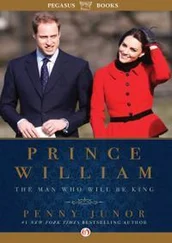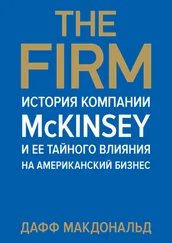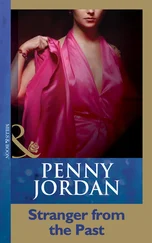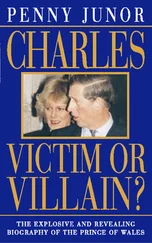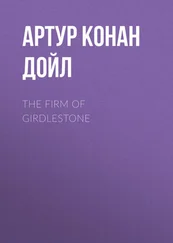The Queen has worked with eleven prime ministers in Britain and since devolution now meets the Scottish First Minister for regular audiences too, and after more than fifty years there is very little to surprise her in politics. John Major met her almost every week for the six and a half years of his premiership and spent a weekend at Balmoral each summer with his wife Norma, as prime ministers traditionally do. Insiders say she liked Major. Margaret Thatcher never seemed to relax; Tony Blair she finds easier.
‘The monarch’s power is not raw power but influence,’ says Major; ‘influence and access.’
Politicians have taken the power away from the monarchy for the last three hundred years. Charles II came back post-Cromwell with few of the powers of Charles I. It has lessened ever since. There are residual powers; if the country was deadlocked after a general election the Queen would have to decide who to send for; but that’s not to say the Queen doesn’t express opinions to the Prime Minister, delicately. She wouldn’t say ‘x is good and y is bad, you ought not to appoint them’, but she does ask questions about policy. The Queen would pose questions that other people might not necessarily ask the PM and he would not be able to say to the Queen, ‘I’m sorry I can’t tell you that’, because there is nothing barred in those conversations. They talk freely, no one records the meeting, nor is any note taken. It is entirely private; on both sides there is a total block on the detail of what is discussed. Because of that, there can be, and in my experience is, total freedom of expression between the Monarch and her Prime Minister about what is happening, what it means and what might follow from it. There is humour too, and in privacy, personal vignettes. I found my discussions with the Queen immensely valuable. First, because one could talk to the Queen in a way you could talk to no one else. I can’t tell you how useful that is. A sounding board, partly, yes, but what she gave was a completely dispassionate point of view. Whenever a PM talks to his ministers, unless he has a very close relationship, of the sort I had, say, with Douglas Hurd or Ian Lang, you don’t have the total certainty that you have an absolutely unbiased answer coming back. The more self-opinionated the PM is the less you are likely to get a proper answer, but I don’t think the Queen would be unwilling to give a proper answer or express a view. She wouldn’t charge in and say ‘I think you’re making a complete mess of this policy’, she would ask about it, how it affected people, how it would work, what its implications would be. She would have a sense of value too: ‘Isn’t that going to be very expensive?’ And that’s extremely valuable because in my case – although this might vary with other PMs – I would talk about the principles of the policy sometimes even before I put it to the Cabinet or anywhere else. My Audiences with the Queen were a breath of fresh air.
During the difficult and unpredictable days when the royal marriage was unravelling, Sir Robert Fellowes held the post of Private Secretary. It was a tough call since he was also Diana’s brother-in-law, married to Diana’s eldest sister, Jane. He was the son of the Queen’s land agent at Sandringham, and very much of the aristocratic, Old Etonian, ex-Army, ex-City, hunting, shooting, fishing brigade and therefore someone with whom the Queen was entirely comfortable. He looked ‘the part’ as John Major would say, ‘but he was never a stuffed shirt’. Others describe him as Bertie Wooster-ish, after the P. G. Wodehouse character, and to outsiders he seemed to embody so much of the stuffiness that the Princess of Wales complained about in the royal household. But as everyone who knows Sir Robert says, his looks are deceptive: he was actually a modernizer and greatly behind the move for change. He is very able, sensitive, shrewd and hugely underestimated. ‘He’s got a lot of realism, an ability to get things done, to embrace ideas even if they are not his own, and be open to suggestion,’ says a former colleague. ‘When you went into battle with him on your side you knew you might be shot on the field of battle but by the enemy, not your own team. That’s a nice feeling.’
However, for much of the time during the 1990s the Prince of Wales didn’t share the same warm feeling about his mother’s Private Secretary, and by no means always felt he was on his side. He felt that Fellowes was out to scupper him and there were times of virtual warfare between his office in St James’s Palace and Buckingham Palace, particularly over the matter of Camilla Parker Bowles. Fellowes disapproved of the Prince’s relationship with Camilla. It was his conviction that all the difficulties that had befallen the House of Windsor in recent times had been because of the Prince’s determination to hang on to Camilla, and there was a lot of truth in that.
When Robert Fellowes retired in January 1999 after twenty-two years with the Queen, some of the most difficult of her reign, for a lucrative life in the City, his deputy, Sir Robin Janvrin, stepped into his shoes. Janvrin, now in his late fifties, is a departure from his predecessors, and relations with the Prince of Wales’s office have improved since his appointment. He has no landowning background, no country pile. The son of a vice admiral, he was educated at Marlborough and Brasenose College, Oxford, where he studied, fortuitously given his current job, under the constitutional historian Dr Vernon Bogdanor, who is still a good friend and useful ally. He then followed his father into the Navy for a ten-year stint before joining the Foreign Office, and in 1987, at the age of forty-one, began work in the Buckingham Palace Press Office. He is another clever man, but wears it lightly. He is cautious; he likes to think things through before making a decision, but his style is relaxed, he doesn’t panic, his colleagues love him and he has an air of normality which so many courtiers of yore never had. One could imagine him running for a bus, hanging from a strap on the underground, or washing the family car – all everyday Middle England things that if the Queen herself can’t do, then those around her certainly should.
In the late 1950s Lord Altrincham (later John Grigg, the historian and biographer) had attacked the Queen for surrounding herself by hunting, shooting and fishing types – many of whom wouldn’t have known where to find a bus. He wrote a stinging critique of the monarchy in a journal he edited called National and English Review , and, coming at a time when no one said or wrote anything derogatory about the monarchy, it caused outrage. He said it had become complacent and hidebound, that the Queen had failed to take the opportunity in this ‘New Elizabethan Age’ to make changes. His ideal was a ‘truly classless and Commonwealth Court’; George V had shaped the modern institution and borne a ‘classless stamp’, the Queen and her sister, by contrast, largely because of their conventional aristocratic education, bore ‘the debutante stamp’ and, by favouring ‘the “tweedy” sort’, bolstered the court’s ‘social lopsidedness’. He went on to attack the Queen’s speaking style, ‘which is frankly “a pain in the neck”’, and said that ‘The personality conveyed by the utterances which are put into her mouth is that of a priggish schoolgirl, captain of the hockey team, a prefect, and a recent candidate for Confirmation.’
The utterances, of course, were put into her mouth by her Private Secretary, at that time Sir Michael Adeane, who was fiercely clever but ultra-conservative and a courtier to his boot straps. He had been Assistant Private Secretary to George VI from 1937 and stayed in post with the Queen for nineteen years. However, the whole episode provided ample proof of how very influential the Private Secretary was, and still is. He determines how the sovereign’s reign is viewed by the public and ultimately posterity. He sees the Queen almost as much as her husband; they meet every morning to go through correspondence and paperwork, he briefs her on the day’s programme and the people she will meet, and they discuss anything that is relevant in the news or of constitutional or political interest. She relies upon him to be her eyes and ears and to give her sound advice and guidance.
Читать дальше
Конец ознакомительного отрывка
Купить книгу

